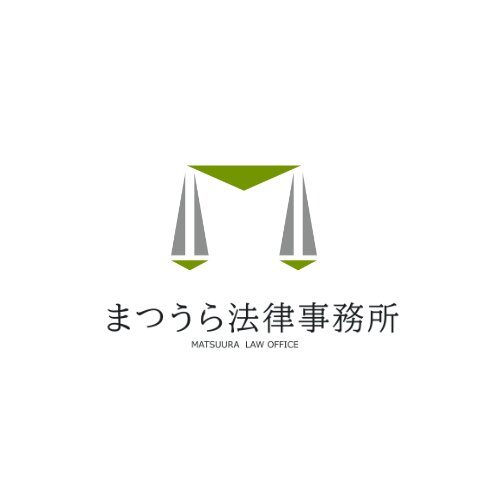Best Will & Testament Lawyers in Japan
Share your needs with us, get contacted by law firms.
Free. Takes 2 min.
Or refine your search by selecting a city:
List of the best lawyers in Japan
About Will & Testament Law in Japan
Will & Testament law in Japan is governed primarily by the Civil Code, which details how individuals can leave instructions for the distribution of their assets upon death. There are several types of wills recognized under Japanese law, including holographic, notarial, and secret wills. Holographic wills are handwritten by the testator, notarial wills are documented with the assistance of a notary public, and secret wills are sealed and submitted to a notary. It's important to comply with specific legal requirements to ensure that a will is considered valid and enforceable.
Why You May Need a Lawyer
There are several situations where legal advice may be indispensable for matters of Will & Testament in Japan:
- Complex Family Situations: If there are children from previous marriages or challenging familial relationships, a lawyer can help navigate these intricacies to prevent disputes.
- Cross-Border Concerns: For foreign nationals or Japanese citizens with assets abroad, a lawyer can assist with understanding how Japanese law interacts with other jurisdictions.
- Tax Implications: Legal counsel can provide advice on estate taxes and inheritance tax implications, ensuring compliance and optimization.
- Business Ownership: If the estate includes a business, legal guidance can help ensure continuity and address any necessary succession planning.
Local Laws Overview
Under Japanese law, certain rules must be followed for a will to be valid. The testator must be at least 15 years old and fully comprehend the implications of their actions. The will must meet all legal requirements pertinent to its type. Japan's inheritance tax can be complex, with the tax rate affected by the relationship between the deceased and the beneficiary, as well as the overall value of the estate. It is also important to note the concept of 'legal portion' where immediate family members are entitled to retain a minimum share of the estate, regardless of the will's contents.
Frequently Asked Questions
What types of wills are recognized in Japan?
Japan recognizes three main types of wills: holographic (handwritten by the testator), notarial (prepared with a notary), and secret (sealed and submitted to a notary).
Can a foreigner draft a will under Japanese law?
Yes, foreigners can draft a will in Japan, provided it complies with local legal requirements. However, complexities can arise if the individual owns assets in multiple countries.
How do I ensure my will is valid in Japan?
A valid will must meet the legal requirements for its specific type and clearly express the testator's intentions. Consulting with a legal expert can help to ensure compliance.
What happens if I die without a will in Japan?
If an individual dies intestate (without a will), Japanese inheritance laws will determine the distribution of the estate, usually favoring immediate family.
Can I disinherit a family member in Japan?
While generally not recommended without legal consultation, disinheriting family can be challenging due to the 'legal portion' requirement in Japanese succession law, giving family members a minimum inheritance.
Are there inheritance taxes in Japan?
Yes, Japan imposes inheritance taxes. The rates depend on the asset value and the heir's relationship to the deceased, with closer relatives typically receiving a more favorable rate.
How can I update my will in Japan?
A will can be updated by drafting a new version that explicitly revokes previous versions or by making a supplementary document known as a codicil.
How is a will executed after death in Japan?
A will is typically executed by an appointed executor, overseen by the family court, aiming to faithfully carry out the deceased’s wishes as stated in the will.
Do I need witnesses when drafting a will in Japan?
Some types of wills require witnesses. Notarial wills specifically require two witnesses to ensure validity.
What roles do executors and administrators play?
Executors manage the distribution of the estate according to the will. If no will is present, the court appoints an administrator to distribute assets per the law.
Additional Resources
For further assistance, consider the following resources:
- Japan Federation of Bar Associations: Offers resources and a directory for finding legal professionals specializing in wills and estates.
- Local Municipal Offices: Can provide general information on will registration and related legal processes.
- Ministry of Justice Japan: Provides legal guidance and information on the probate process and relevant laws.
Next Steps
For those seeking legal assistance in matters of Will & Testament in Japan:
- Conduct initial research on your specific needs and gather relevant documents and information about your estate.
- Consult with a lawyer specializing in Japanese inheritance law to ensure your will is legally binding and aligns with your wishes.
- If needed, reach out to the recommended resources for additional support and clarification on procedural requirements.
- Consider engaging with estate planners if your estate situation involves complex assets or international considerations.
Lawzana helps you find the best lawyers and law firms in Japan through a curated and pre-screened list of qualified legal professionals. Our platform offers rankings and detailed profiles of attorneys and law firms, allowing you to compare based on practice areas, including Will & Testament, experience, and client feedback.
Each profile includes a description of the firm's areas of practice, client reviews, team members and partners, year of establishment, spoken languages, office locations, contact information, social media presence, and any published articles or resources. Most firms on our platform speak English and are experienced in both local and international legal matters.
Get a quote from top-rated law firms in Japan — quickly, securely, and without unnecessary hassle.
Disclaimer:
The information provided on this page is for general informational purposes only and does not constitute legal advice. While we strive to ensure the accuracy and relevance of the content, legal information may change over time, and interpretations of the law can vary. You should always consult with a qualified legal professional for advice specific to your situation.
We disclaim all liability for actions taken or not taken based on the content of this page. If you believe any information is incorrect or outdated, please contact us, and we will review and update it where appropriate.
Browse will & testament law firms by city in Japan
Refine your search by selecting a city.
















